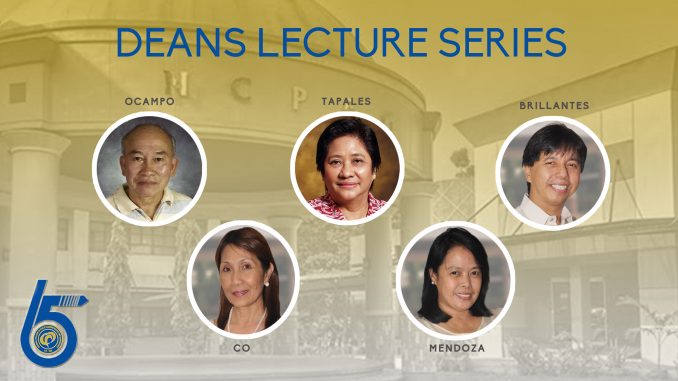
The National College of Public Administration and Governance (NCPAG), University of the Philippines Diliman is turning 65 in 2017. Established as the Institute of Public Administration (IPA) in June 15, 1952, the College has through the years been at the forefront of improving the standards, quality and effectiveness of Public Administration education, research and extension in the service of the country and the region.
To celebrate this milestone, NCPAG is holding a lecture series featuring its current and former deans. The activity aims to honor and strengthen the College’s tradition of scholarship and intellectual praxis in the service of the nation. Likewise, it is aimed at paying tribute to the men and women who steered the College to becoming a great institution it is today.
The lecture series will be conducted throughout 2017. Deans Romeo B. Ocampo, Proserpina D. Tapales, Alex B. Brillantes, Jr., Edna Estefania A. Co and Maria Fe Villamejor-Mendoza will be invited to deliver a lecture on a topic of their expertise. The lectures will then be published in a monograph or a special issue of the Philippine Journal of Public Administration (PJPA).
The maiden lecture will be on February 3, 2017, 2pm at the NCPAG Case Room. Prof. Romeo Ocampo will deliver his lecture “Against Federalism: Why it Will Fail and Bring Us to the Brink.” Ocampo argues that “The proposed shift to a federal form of government is unlikely to succeed and may lead instead to the dismemberment of the Philippines. Federalization will critically weaken the central government by sharing its sovereign powers and substantial more of its resources with the component states. Rather than promote equitable development, federalization will probably enable the better-endowed regions-states to scoot even farther ahead of the others.”
NCPAG has been offering academic programs in Public Administration; providing capacity building interventions and knowledge co-creation in among others, governance, management, public policymaking, fiscal administration, citizenship, leadership and development; giving technical advice and assistance, and engaging in advocacy, community work and other activities that have shaped the direction of policy discourses, public services and reforms towards good governance and the public interest.
The lectures are open to the public at no cost.
